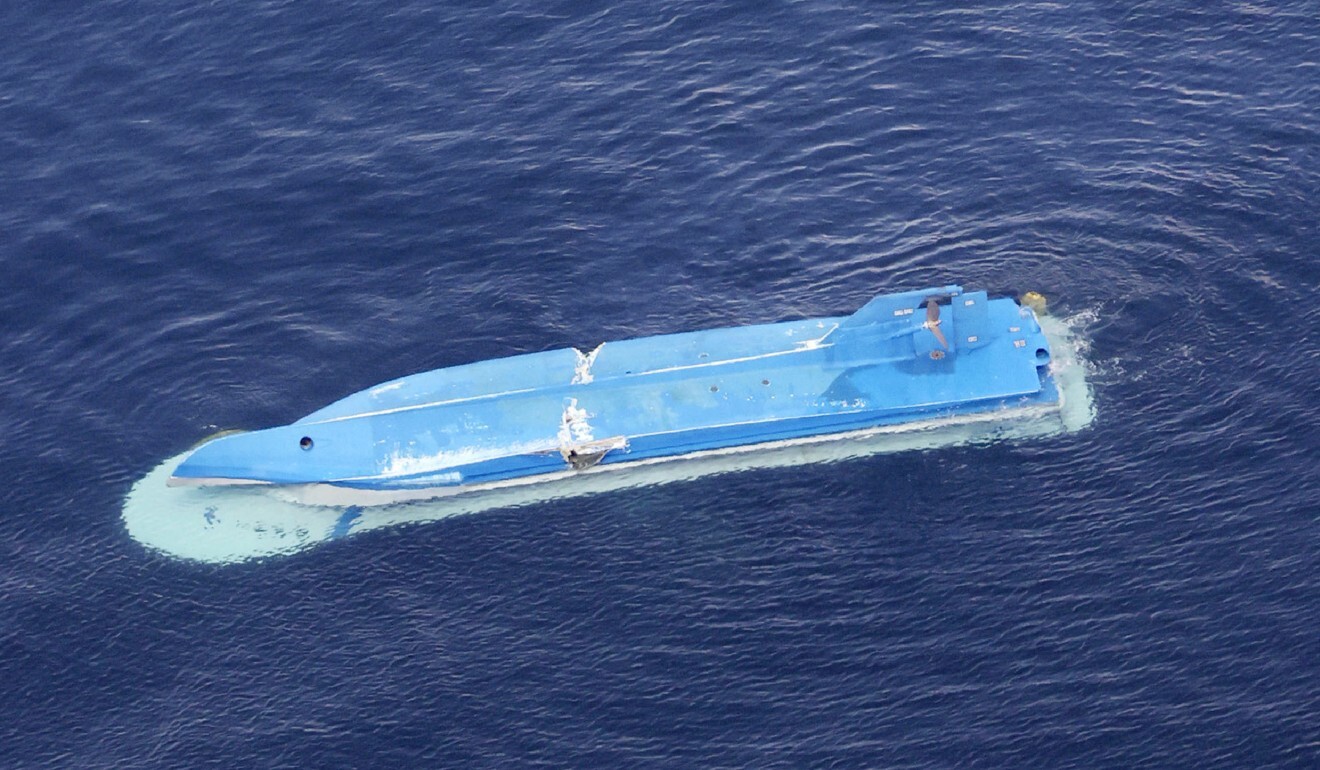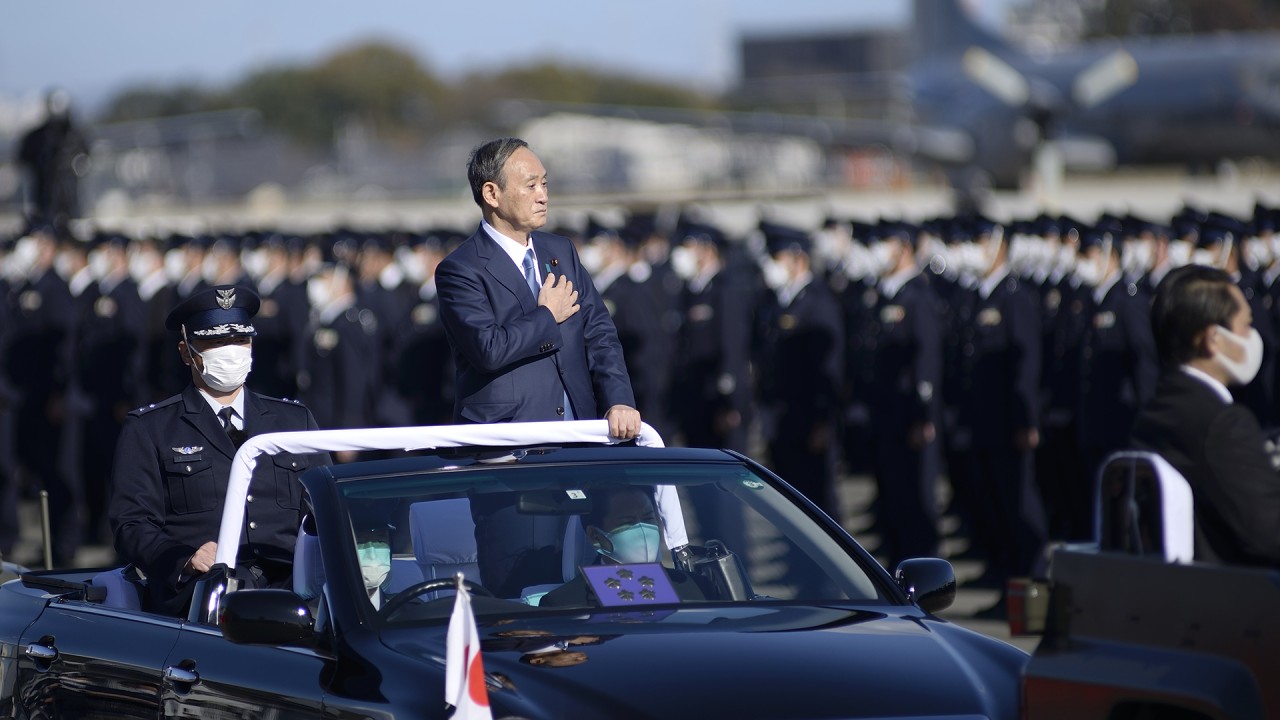
‘Hostage diplomacy’? Russia’s seizure of Japanese trawler raises eyebrows as Russian arrested over fishermen’s deaths
- Moscow’s embassy in Tokyo on Monday demanded that Japan not ‘politicise’ the incident following the arrest of a Russian sailor over the three deaths
- Russia, in turn, has been accused by observers of ‘hostage diplomacy’ for seizing a Japanese trawler with 14 crew aboard two days after the fatal crash
Moscow’s embassy in Tokyo on Monday demanded that Japan not “politicise” the incident following the arrest of a Russian sailor charged with causing the deaths. Russia, in turn, has been accused by observers of “hostage diplomacy” for seizing a Japanese trawler with 14 crew aboard two days after the fatal collision.
Pavel Dobrianski, 38, was detained on Monday after Japanese investigators determined he was in command of the 662-tonne Amur when it hit the 9.7-tonne Hokko Maru No. 8 at around 6am on May 26.
Only two of the smaller Japanese vessel’s five crew survived the crash, with no injuries reported among the 23 crewmen on board the Russian ship.
A court in the port of Mombetsu in Hokkaido, where the Amur was heading with a cargo of seafood from Sakhalin at the time of the collision, ordered the ship’s seizure pending a compensation claim.

Dobrianski, the ship’s third officer, was charged with professional negligence resulting in death and endangering traffic due to negligence while sailing through the Sea of Okhotsk.
Russian government officials have pinned the blame on the Japanese vessel, according to reports in the country’s domestic media, claiming that the fishermen were at fault for failing to signal surrounding ships as they hauled in a catch of crabs when visibility was poor because of fog.
A statement issued jointly by the Russian embassy in Tokyo and the consulate general in Sapporo said diplomats are working to “keep the situation under control, provide necessary consular assistance to the Russian citizen, including ensuring normal conditions of detention”.
Dobrianski has been assigned a lawyer hired by the owner of the Amur, the embassy said, adding, “We assume that the investigation into this case will be conducted fairly and will not be politicised.”
Explainer | Japan’s territorial disputes: China, South Korea, Russia and more
Russia’s demand not to politicise the incident has raised eyebrows among observers given the seemingly tit-for-tat seizure of a Japanese trawler by Russian border guards two days after the Amur was impounded.
The 160-tonne Eiho Maru No. 172, based out of Japan’s northernmost city of Wakkanai, was accused of entering Russian territorial waters on May 28 and has been detained in the port of Korsakov, in southern Sakhalin.
Tokyo initially appeared reluctant to take a stand over the incident, but that changed five days later when it was able to show, using tracking data, that the Eiho Maru had been within Japan’s exclusive economic zone when it was seized.
Japan’s foreign ministry filed an official complaint with Russia on June 2, demanding the immediate release of the ship and its 14 crew.
Nothing about that is political, but Russia responded by seizing another boat and claiming it was in their waters. That is … simply hostage diplomacy
An editorial in the Sankei newspaper suggested Russian authorities seized the vessel “to use as a bargaining chip over the collision two days earlier” – and called on the Japanese government to take “firmer action”.
Toshimitsu Shigemura, a professor of international relations at Tokyo’s Waseda University, said the tit-for-tat seizures went far beyond mere fishing disputes.
“The government of [former prime minister Shinzo] Abe has gone and Russia is extremely suspicious of the new Tokyo administration, particularly in how it is going to cooperate with President [Joe] Biden in Washington,” he said.
“Moscow sees any cooperation between Japan and the US as an attack on Russia, so a political provocation like this is not a surprise.”
Japan cries foul as Russia moves missiles into Kuril Islands
Tokyo and Moscow both claim a chain of islands south of Sakhalin, known as the Northern Territories in Japan and the Southern Kurils in Russia, that were seized by Soviet forces in the closing days of World War II. The dispute over their sovereignty is a continual bone of contention between the two.
There have been several clashes in the region in recent years, with James Brown, a professor of international relations at the Tokyo campus of Temple University, pointing to an incident in 2006 when a Japanese fisherman was shot and killed by Russia’s coastguard after his vessel strayed into Russian waters.
The latest incident, however, “can be seen as quite an overreaction on the Russian side”, Brown said.
“From the Japanese side, I think it is clear that this was never a political issue,” he said. “There was a fatal collision at sea and the Japanese authorities followed the appropriate investigative procedures.”

01:29
Japan approves record US$52 billion defence budget
Formal charges were only filed after Japanese investigators deemed the Amur’s crew to be negligent, Brown said.
“Nothing about that is political, but Russia responded by seizing another boat and claiming it was in their waters. That is quite an escalation and is simply hostage diplomacy,” he said.
“This whole situation shows just how difficult Russia is to deal with and how it sees everything through an increasingly politicised lens – and that makes their demand that Japan ‘not politicise’ the issue even more ironic.”

